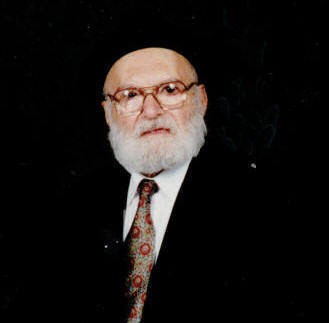
Netan Eli was born in 1294 into a devout family in the historic city of Hamadan.
Less than 20 months after his birth, his mother, having borne four children, passed away. His father, Eliyahu Khodadad, was a well-known merchant in Hamadan and, not long after, married again to care for the children.
Yehoshua completed his elementary and secondary education in Alliance schools and finished his high school education at Pahlavi High School in Hamadan. After obtaining his diploma in 1934, he went to Israel for further studies and enrolled at the Technion – Israel Institute of Technology, majoring in architectural engineering.
Only a year later, Netan had to leave the college amid significant success and achievements due to financial constraints and embarked on a journey to Jerusalem in search of employment. He soon registered at the Hebrew University of Jerusalem to continue his education, this time majoring in literature (Talmud and Torah).
Less than two years later, the flames of World War II erupted in Europe while Israel was under the jurisdiction of the British monarchy. Yehoshua Netan Eli worked in an office belonging to the British as a translator and remained employed in this position until the end of the war. Despite leaving university, he spent his free time studying religious texts, especially the Torah.
After the end of World War II, Mr. Netan Eli was invited by the late Rabbi Levi, the founder of Ozar Hatorah, to collaborate in this cultural institution in Iran, teaching Hebrew and religious law to the Iranian community.
After returning to his homeland, Iran, Yehoshua Netan Eli found work with the cultural group “Ganj-e Danesh.” In 1947, he, along with Aryeh Peik, working on behalf of Rabbi Levi, was given the responsibility of arranging teacher training seminars and teaching at Tehran’s yeshiva. This initiative aimed to combat the shortage of Hebrew teachers in Jewish schools across Iran.
In 1948, Yehoshua Netan Eli married Malekeh from the Haim family. This union resulted in three sons and one daughter, all of whom followed in their father’s footsteps. Just six months after marriage, he embarked on a journey to Shiraz, where he taught in Ganj-e Danesh schools for 12 years.
Yehoshua Netan Eli had a thorough command of Hebrew, Persian, French, and English. Furthermore, in his pursuit of studying the sacred Torah texts, he acquired proficiency in German and Latin to understand the Latin and the ancient translations of the Torah (the language of the Christian Church). He devoted over 35 years of his life to teaching Hebrew and religious law in Jewish schools in Iran, playing a vital role as a spiritual figure in Ozar Hatorah School in advancing Jewish culture and disseminating Torah laws among various Jewish segments of the community.
In 1962, Rab Levi, founder of the Ozar Hatorah passed away due to a heart attack. Soon after, his secretary Solomon Kohan Sedgh passed away due to an illness. Facing this void, Global Ozar Hatorah installed Dr. Norman Paris as the head of Tehran’s Ozar Hatorah, who immediately appointed Rabbi Netan Eli as his secretary.
Norman Paris was succeeded by Rob Horowitz, followed by IsraelShif and Professor Yosef Shokhaterovic. In the eighteen years that Rabbi Yehoshua Netan Eli was the secretary of Ozar Hatroah as a cultural scholar, he fulfilled all the educational and religious duties that had been trusted to him.
Following the establishment of the Islamic Republic in Iran in 1980, Rabbi Yehoshua Netan Eli left his homeland, Iran, for Israel, along with his family. After a year of residence in Israel, he immigrated to Los Angeles at the invitation of his relatives. In Los Angeles, despite being retired, he continued to dedicate most of his time to providing religious education to the youth, much like he did in the past.
Moreover, in this context, he forged productive partnerships to develop synagogues and cultural and educational hubs in Los Angeles. As a result, during the inauguration of multiple educational centers in the Wilshire region in 1992, they proudly christened a synagogue and a school in his name, “Netan Eli.” In 1994, another synagogue in Los Angeles adopted the name “Netan Eli,” followed by a school in 1998, acknowledging his substantial cultural contributions. This recognition was particularly significant within the Ozar Hatorah community, where he served as the spiritual leader starting in 1996.
Another one of Rabbi Netan Eli’s cultural activities was translation and editing of religious texts. He especially undertook the re-editing of all his previous religious writings. He also translated two books of Talmud and the Haggadah for Passover. Furthermore, he had written about his daily memories and important events since 1937, when he was 18, and analyzed them. More than seventy years have passed, and his scholarly research and writings has become a collection of ten thick handwritten books titled “Notes of Seventy Years of the Cultural Activities of Rabbi Netan Eli,” which is kept by his daughter.
Rabbi Yehoshua Netan Eli, known as a religious educator, bid farewell to the world on December 24, 2005, at the age of 89, due to an illness. As per his will, he was laid to rest in Ozar, Israel. His significant works include:
1. “Biography of the Prophets (Nevi’im)”
2. “Treasure of Jewels”
3. “Talmudic Treasure”
4. “Marital Life with Happiness” (translation)
5. “Haggadah Shel Pesach”
